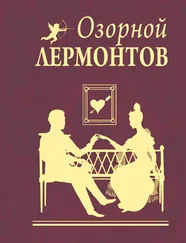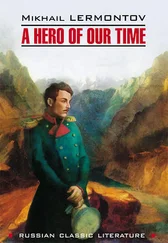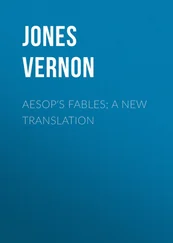“What a scoundrel!” said the second Cossack. “When he drinks too much chikhir, [5] chikhir: A young red wine from the Caucasus.
then he’s off hacking to pieces everything that he sees. Let’s go after him, Yeremeich, we must tie him up, otherwise…”
They went off, and I continued on my path with great care and happily made it to my quarters at last.
I stayed with an old uryadnik, [6] uryadnik: This is a Cossack NCO, a noncommissioned officer.
whom I loved for his good morals, and especially for his pretty daughter, Nastya.
She was waiting for me at the wicket gate as usual, wrapped in a fur coat. The moon lit up her lovely lips, which had turned a little blue from the cold of the night. Having recognized me, she smiled, but I wasn’t in the mood. “Good night, Nastya,” I said, walking past. She wanted to say something in reply but simply sighed.
I closed the door to my room behind me and lit the candle and fell onto my bed. But slumber made me wait for it longer than usual. The east was already paling when I fell asleep, but apparently it was written in the skies that I wouldn’t get a good night’s sleep. At four o’clock in the morning, two fists knocked on my window. I jumped up. “What is it?”
“Get up! Get dressed!” various voices cried to me. I quickly dressed and went out. “Do you know what has happened?” three officers asked me in unison, coming for me. They were as pale as death.
“What?”
“Vulich has been killed.”
I turned to stone.
“Yes, killed,” they continued. “Let’s go, quickly.”
“Where to?!”
“You’ll find out on the way…”
We went off. They told me all that had happened, adding remarks about the strange predestination that had saved him from inevitable death half an hour before his death. Vulich had been walking alone along a dark street; the drunk Cossack who had cleaved the swine galloped at him and might have passed him by without noticing Vulich had the latter not stopped and said:
“Brother, whom are you looking for?”
“You!” replied the Cossack, striking him with his saber, slicing him from the shoulder almost to the heart… The two Cossacks I encountered, who had been tracking the murderer, had appeared just then; they picked up the wounded man, but he was already at his final breath, saying, “He was right!” I alone understood the dark meaning of these words. They referred to me. I had involuntarily predicted his poor fate. My instinct had not fooled me. I had correctly read the stamp of near demise in his altered face.
The murderer had locked himself in an empty hut at the end of the stanitsa. We went there. A mass of women were weeping while running in the same direction. From time to time a tardy Cossack galloped out onto the street, hurriedly fastening his dagger to his belt, and outstripping us at a gallop.
The turmoil was terrible.
At long last we arrived. We watched: a crowd stood around the peasant house, the doors and shutters of which were locked from the inside. Officers and Cossacks talked heatedly among themselves. The women were wailing, condemning and reckoning. My eyes were cast on to an old woman among them, whose conspicuous face was expressing mad despair. She was sitting on a thick log, leaning her elbows on her knees, and supporting her head with her hands: it was the mother of the murderer. Her lips stirred from time to time. Were they whispering a curse or a prayer?
In the meantime, something needed to be resolved, and the criminal needed to be captured. No one, however, dared to cast himself forward. I walked up to the window and looked through a chink in the shutters. He lay on the floor, pale, holding a pistol in his right hand. His bloodied saber lay next to him. His expressive eyes were rolling around in a frightening way. Now and then he flinched and grabbed hold of his head, as if indistinctly remembering yesterday’s events. I didn’t read any significant resolution in this agitated gaze and said to the major that it was pointless of him not to order the Cossacks to break down the door and rush in because it would be better done now than later when he had completely come to his senses.
At this time, old Esaul walked up to the door and called him by name; the latter responded.
“You have sinned, brother Efimych,” said Esaul, “and there’s nothing to be done—give yourself up!”
“I will not give up!” answered the Cossack.
“Fear God. After all, you are not an accursed Chechen, but an honest Christian. And well, if your sin has led you astray, then there is nothing to be done—you won’t avoid your fate!”
“I will not give up!” the Cossack cried threateningly, and the cracking of his cocking-piece was audible.
“Hey, auntie,” said Esaul to the old woman, “talk to your boy, perhaps he will listen to you… All this will only anger God. Yes, and see here, these men have waited two hours already.”
The old woman looked at him intently and shook her head.
“Vasily Petrovich,” said Esaul, walking up to the major. “He won’t give himself up—I know him. But if we break down the door, then many of our people will be killed. Would it not be better to order him shot? There is a big chink in the shutters.”
At that minute a strange thought flashed through my head: like Vulich, I was thinking of testing fate.
“Wait,” I said to the major, “I will get him alive.”
Having ordered Esaul to engage him in conversation and placing three Cossacks at the door, ready to beat it down and rush to my aid at the given signal, I walked around the peasant house and approached the fateful window. My heart was pounding.
“Oh, you, accursed man!” cried Esaul. “What are you doing—mocking us, are you? Or do you think we won’t get the better of you?”
He started knocking on the door with all his might. Having put my eye to the chink in the shutter, I followed the movements of the Cossack, who wasn’t expecting an attack from this side. And suddenly I ripped off the shutter and flung myself headfirst through the window. A shot rang out just above my ear; the bullet tore my epaulet. But the smoke that had filled the room prevented my opponent from finding his saber, which was lying next to him. I grabbed him by the arm; the Cossacks burst in, and three minutes hadn’t passed before the criminal was tied up and led off under guard. The people walked off. The officers congratulated me—and for good reason!
After all this, how could one not become a fatalist? But who knows for sure if he is convinced of something or not?… And how often do we take a deception of feelings or a blunder of common sense for a conviction!
I love to doubt everything: this inclination of mind doesn’t hinder the decisiveness of a character—on the contrary, as far as I am concerned, I am always braver going forward when I don’t know what to expect. After all, nothing can happen that is worse than death—and you can’t avoid death!
Having returned to the fortress, I recounted to Maxim Maximych all that had happened to me and all that I had witnessed, and wanted to know his opinion on the count of predestination. At first he didn’t understand the word, but I explained it to him as best I could and then he said significantly, shaking his head:
“Yes, sir. Of course. Quite a wise old joke!… But those Asian cocking-pieces frequently misfire if they are badly greased or if you haven’t pressed hard enough with your finger. I admit I don’t much like Chechen rifles, either. They are somehow unbecoming to our brothers. The butt is small—look into them and you burn your nose! That said, their sabers demand respect, pure and simple!”
Then, having thought for a while, he added:
Читать дальше
Конец ознакомительного отрывка
Купить книгу
![Михаил Лермонтов A Hero of Our Time [New Translation] обложка книги](/books/27671/mihail-lermontov-a-hero-of-our-time-new-translati-cover.webp)










